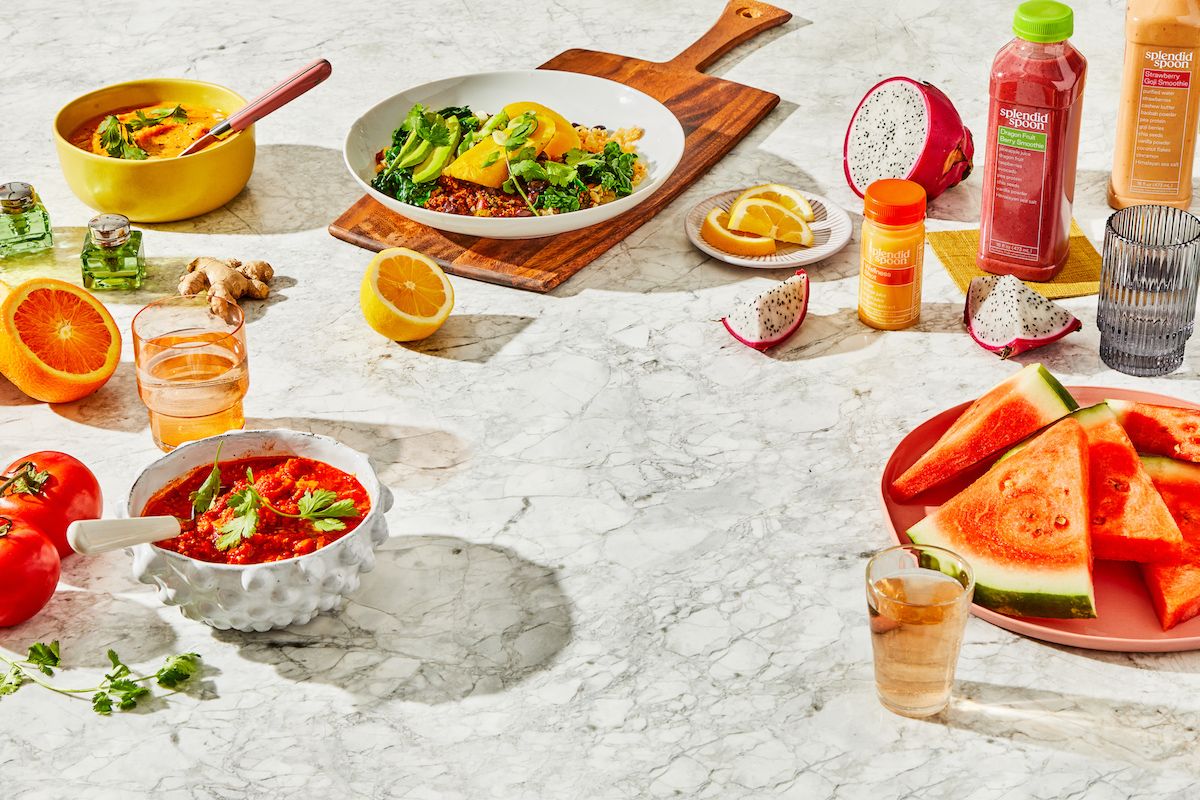
What is sugar, exactly? It has a bad reputation for causing cavities, splitting headaches and serious health problems but it’s also a carbohydrate that carries vital energy to the cells in your body to keep you going strong. Nutrition labels can tell you how much sugar is in a food or beverage, but they don’t distinguish between naturally occurring sugars found in fruits, vegetables and grains versus added sugars like syrups, sugar crystals and synthetics—which can lead to confusion about whether something sweet is healthy or harmful.
But understanding sugar doesn’t have to be hard. You don’t have to memorize the molecular structures of glucose or recite the definition of monosaccharides to figure out which forms of sugar you can eat with abandon and which ones will bring you crashing to a halt. We
Sugar isn’t a bad word.
Fruits along with vegetables and whole grains contain varying amounts of naturally-occurring sugars that carry carbohydrates to your cells. Carbs are one of the three vital nutrients that you need to survive (the other two are protein and fat). When you consume sugar from whole plants, you don’t just get a sweet burst of energy but also vitamins, minerals and nutrients.
Whether they’re natural, raw or organic, added sugars get metabolized in your body pretty much the same way: instantaneously. From cane sugar crystals and maple syrup to honey and yes, even agave, these sweeteners are missing precious fiber that fruit sugars contain.
Added sugars are empty calories and have been linked to serious health issues like heart attacks and strokes. Sometimes disguised as barley malt, brown rice syrup and lactose, these added sugars send your blood sugar levels soaring which causes your body to produce insulin in order to normalize the flow of sugar into your cells.
Not all sugar is created equal.
Biting into an apple is a much different experience for your tastebuds and your metabolism than biting into a donut or even drinking a glass of all-natural apple juice. Unlike pastries and even juice, whole fruits are filling, take time to chew and digest, and transport a variety of vitamins, minerals and antioxidants to aid your immune system and promote cellular production.
The dietary fiber in fruit skin and the water in its flesh help your digestive system absorb sugar efficiently over time rather than all at once. Not only does chewing slow the digestive process but certain enzymes in your body are employed to break down the cell walls of the fruit to get the carbohydrates locked inside. If sugar is the accelerator, think of fiber as the brake pedal that slows down absorption and keeps your metabolism from being hurled into a tailspin.
10:1 fiber-to-sugar ratio is the sweet spot.
According to experts, a good ratio to ensure slow and steady metabolization of sugar is 10:1. That means you should pair at least 1 gram of fiber with every 10 grams of carbohydrates. If you’re eating fruit whole, you’ll have no problem.
When it comes to packaged foods, nutrition labels and ingredient lists can help hit your ratio and pinpoint how much sugar there is and where it comes from. Ingredients are listed in order of their quantity, so if there are fruits and added sugars in a product, you’ll be able to gauge the quantity of each based on where it falls in the list.
But what about fruit smoothies? Smoothies are sort of like the best of both worlds, transporting liquified fruity sweetness to your taste buds while bringing fiber along for the ride. Splendid Spoon smoothies are a great way to reach your daily servings of fruit without foregoing other nutrients. Our smoothies contain anywhere from 8 to 12 grams of fiber in every bottle which contributes to your recommended daily fiber intake (about 30 grams). Plus, Splendid Spoon’s smoothie sugar-to-fiber ratio hovers around 10:3—that’s 3x the amount of fiber for every 10 grams of carbohydrates recommended—which means even slower, smoother fruit-sugar digestion.
At Splendid Spoon, we help you stay sweet and balanced with easy vegan meal options for breakfast, lunch and dinner. Don’t have time to calculate ratios and scrutinize ingredient lists? You can leave the work to us. All of our meals are designed to make eating nutrient-dense and delicious plant-based food easy.
Ready to add more fiber-rich fruits and vegetables plants to your diet? Set up your delivery today.
Questions? Email [email protected].
